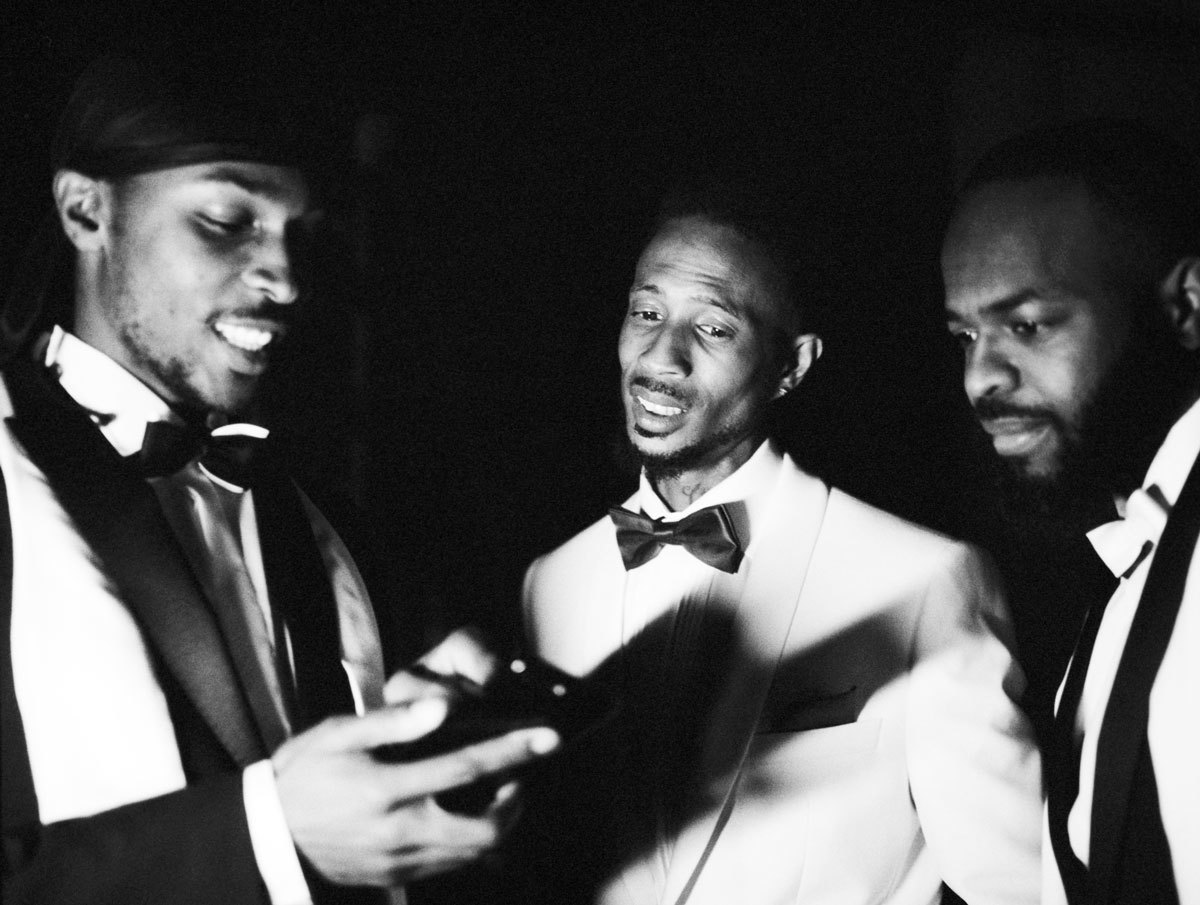He’s the legendary Forest Gate MC who shaped his distinctive tone by rising through the ranks of London’s jungle scene in the 90s. His work with N.A.S.T.Y Crew elevated his legendary status through grime’s pirate radio circuit as his voice spread across the UK thanks to secondary school kids circulating taped radio sets. Dee’s ’03 underground hits Frontline and Birds In The Sky are set at the foundations of grime’s signature golden-era sound. Seven years later, Dee delivered another gem with his version of the Street Fighter Riddim – which brought to life his love for his arcade edition Xbox controller. After his Australian tour earlier this year, he’s now ready to drop his new album and deliver his long-awaited headline London show at the O2 Academy later this month.
Dee invited i-D down to the video shoot for the How I Like It (Remix), to showcase his debonair tailor-made ensemble. While we were there, we spoke to the scene’s key players to discuss their sharp suits, the evolution of grime’s fashion sense and their first encounters with ‘every MC’s favourite MC’.
Press play on How I Like It, and catch up with JME, Chip, Diamond and Lethal B, below.
What does it mean to do a track with D Double?
Chip: He’s like the MC’s MC. He’s probably the first grime MC whose lyrics I knew. His early track Birds In The Sky was the first thing that really got man into grime.
When was the first time you met D Double?
JME: It must’ve been an early radio set we did. We were on Heat FM in north London and everyone else was obviously in east London, on Deja Vu and all the stations in east. We had a set and I think Skepta hooked it up for Footsie and Dee to come through. In my head I thought, ‘they’re not gonna come’. We were Meridian doing our thing in north London on radio. I remember 100% exactly what building it was in as well. Footsie and D Double came through for our set and smashed it. I don’t know if that was before the Serious Thugz tune we did or if that happened because of that. Then I met him again at the Rinse studio. That was in Bethnal, Whitechapel. What’s the name – Stepney! The studio in Stepney. Big up Kevin Legend. That was the recording studio. Skepta was making bare beats. He made the tune and was like, ‘Yo I’m gonna get D Double on the tune’. It’s weird because I’ve always seen D Double as a legend before me. People in the scene now will see us together and class us together. But there was a time when I had zero lyrics. I was just a listener and I was listening to D Double E on radio and on tape decks at school. He’s a legend from before me. It’s sick how we’re all around now together.
Diamond: I’m from Bulgaria originally. Years ago I was doing a lot of parties in Bulgaria as a promoter and we invited him over a couple of times. I was involved with someone there and D Double worked with that guy, a Bulgarian rapper and from there Dee and I just stayed in touch. Later on I moved to London and we just kept building what we were building; Bluku Music.
Lethal B: First time I met Double was in a club called EQ. It was back in 2001, More Fire Crew days. So we were there on set – that’s where the pirate radio was at the time – and I remember just seeing this guy walking through the club. We were obviously using their equipment to spit the bars and that. I see this guy walking through and I’m thinking, ‘Who’s this guy on our set? Then I see D Double – but we knew him as Dee – and he was with Sharky Major. They were like, ‘We wanna jump on your set’. So they come on the set. It was calm. That was the first time I spat with him because I heard about him and then he come and did his thing. I was like ‘This guy’s hard, still!’ We weren’t really saying too much but after that I kept seeing him popping up on radio and we were doing the under-18s things together. He was N.A.S.T.Y Crew at the time, I was More Fire so – it wasn’t a rivalry.
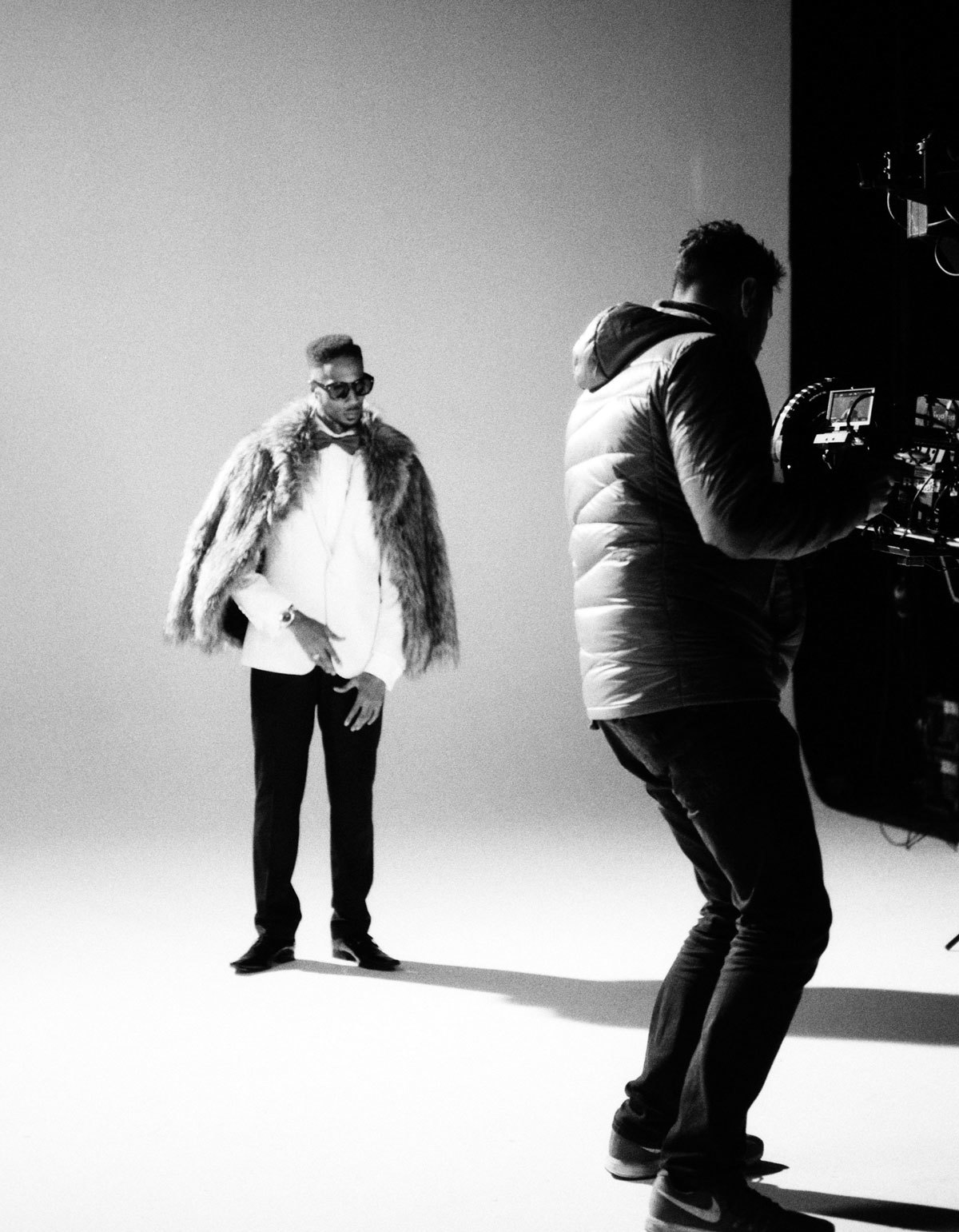
Were there issues back then?
Lethal B: No big issues, but obviously we were More Fire, they were N.A.S.T.Y and we were trying to be the biggest crew in east. So we weren’t the best of friends. I think a few years later, back in ’03, I started seeing more him more at raves. I remember east London was killing it so every time we’d go somewhere, every other ends would gang up on us so when we’d go it’d be like ‘Fam, we’re rolling with the east dons’. North dons are trying it, south dons are trying it, and everyone’s trying it. So it was like, be a team. Not a gang, but we’re east man so we roll together. We started doing that more and then, the end of 2003 / early 2004, that’s when I hit him up about the Pow! song. I was like ‘Bruv, I want to get you on this new track I’ve done called Pow! and I want everyone to come spit their bars’. He was like ‘Yeah, cool’. He came to the studio, laid his verse down, and ever since then we’ve been cool.
Diamond, you produced the track. What inspires you when you create a beat?
Diamond: Mood inspires me a lot. I need to be in the mood. Then I just express that in the music. When I was making How You Like ItI just wanted to make a banger. I just wanted to make something that was gonna rock hard. I wanted to make it as simple as possible and as hard as possible, that’s why there’s a lot of bass in there. I usually use software like Logic and Ableton Live and I switch between the two to rewire them.
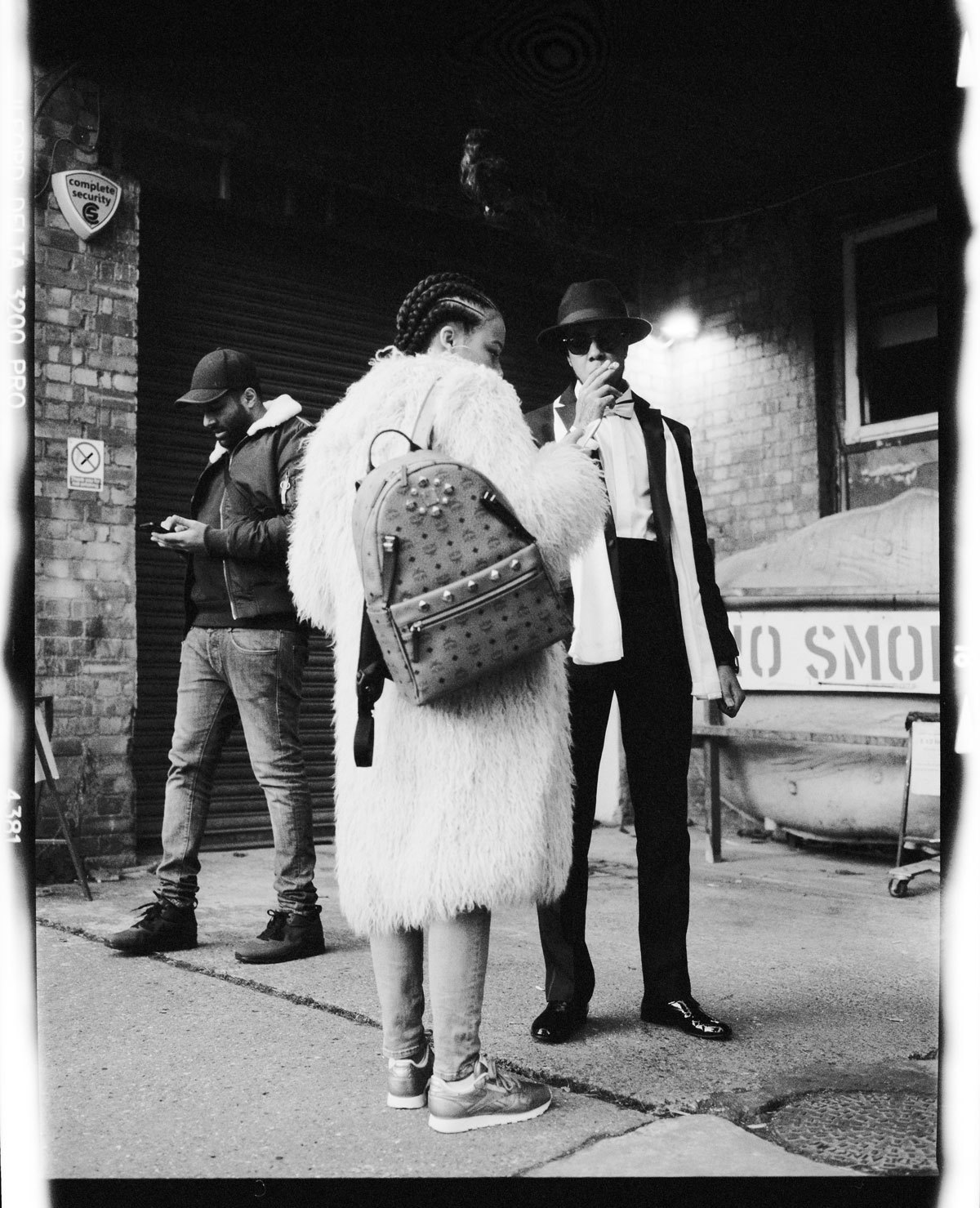
What’s the story behind you getting involved with the remix?
Chip: Me and Double speak quite often so he’s always said when he’s got a track that he wants me on, he’s gonna shout man. He had How You Like It, so he shouted man. That’s a done deed when D Double calls.
Lethal: Yeah, Double hit me up. I’m recording my album at the moment and he hit me up late last year, like November. He was like ‘Yo, Biz. I’ve got this tune. I want you to jump on it, quick eight-bar ting.’ I heard it and I literally wrote the bar there and then I sent to him like, ‘Funnily enough I’m in studio tonight. I’ll just lay it down for you. Then boom. Do your ting. Let me know what the plans are.’ Literally, the next day I sent it to him and he’s like ‘Yeah, the verse is sick’. He told me there’s gonna be Wiley on it, JME etc. I thought, ‘This might be a mad ting’. He sent me the final version and I thought ‘Yeah, this is hard’. He told me the concept for the video and it’s different. People see grime man in tracksuits and hoodies. So it’s different to switch it with a hard grime tune and show a different side to us all.
How often do you suit and boot?
Chip: Not very often, to be honest! Last time was probably my mate’s wedding.
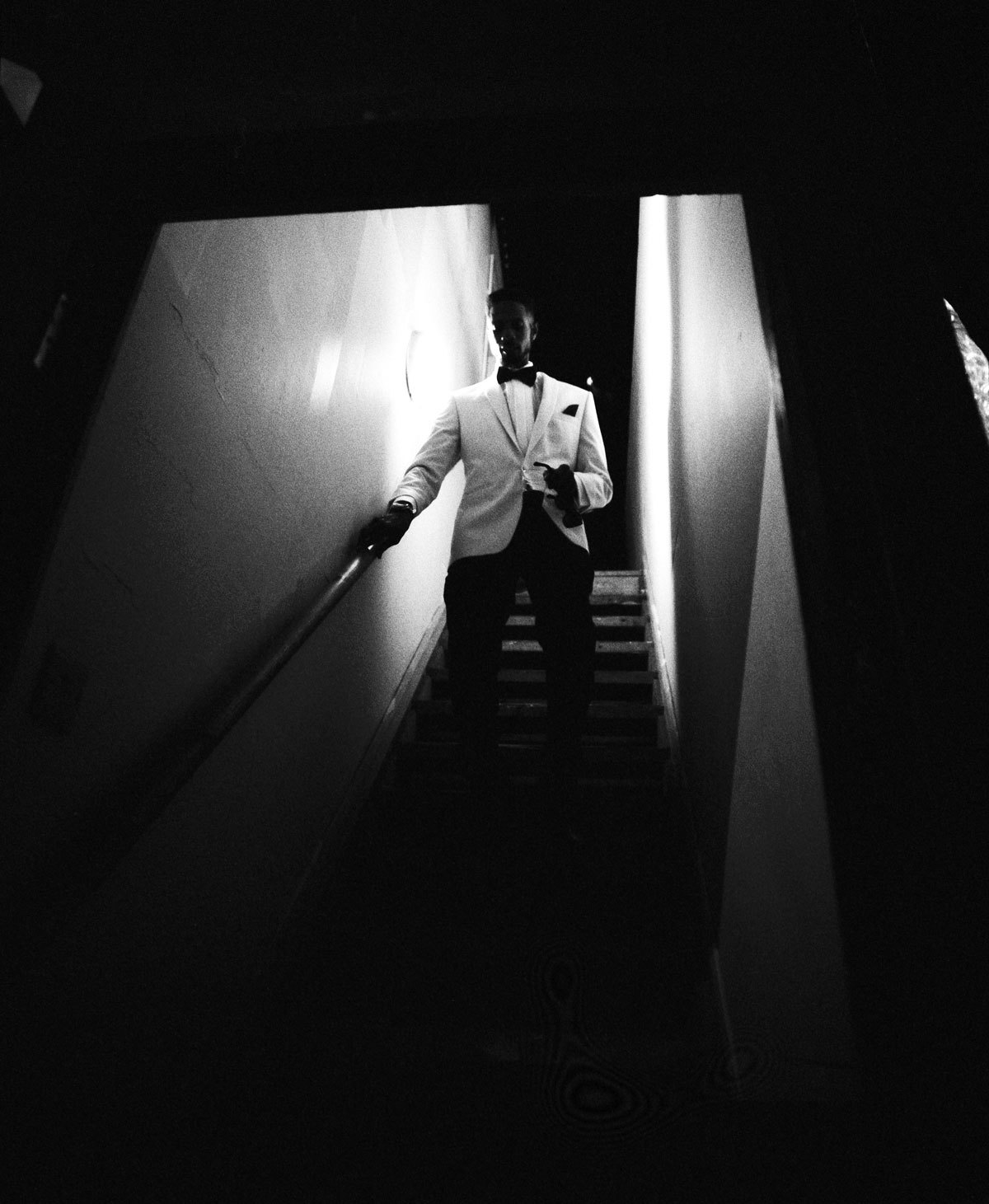
How do you describe your style?
Chip: My style is new. I go through phases in terms of things I wanna wear. Now I’m trying to be a bit more conscious of what goes onand the type of brands I represent. People say you are what you eat but you are what you wear as well. There’s a message on the clothes that you wear.
Lethal B: It’s a representation of where we’re from. Back then, it was just rolling in what was going on. Now I think everyone’s embracing our culture. People realise how powerful what we do is to the rest of the world. Seeing people wanting to dress like us now. Akademiks was cool, back then, but that was an American Yankee ting and now, we’re doing our own ting. We wear Air Max, Reeboks, Stone Island. So I think it’s important now that we fully embrace British culture – as well as the sound. That’s bridging the gap. I think it opens different kinds of doors as well. Music and fashion go together. I think that’s why things are really starting to penetrate throughout the rest of the world. They can find a new energy where they can see it’s different. We’re not trying to copy no one. We’re just trying to be us. It’s our thing. I feel like everyone’s rating it now.
JME: Growing up, I dressed to be different. I wanted to be different. I wanted to be exciting. So I’d wear bright colours. I used to like Nike ID trainers in mad colours and stuff. It was bright colours and my personality was bright and out there. I was searching, trying out new things, experimenting. I feel like I’ve found my lane now. I know who I am now. I know what I’m about and I know what I don’t need to do anymore. What I don’t need to do is try and get the thing that people think you need to get. Like all the brands people think you need to get. The general mindset of a guy from the streets is you need to have that watch, have this, etc. I know I don’t need that anymore.
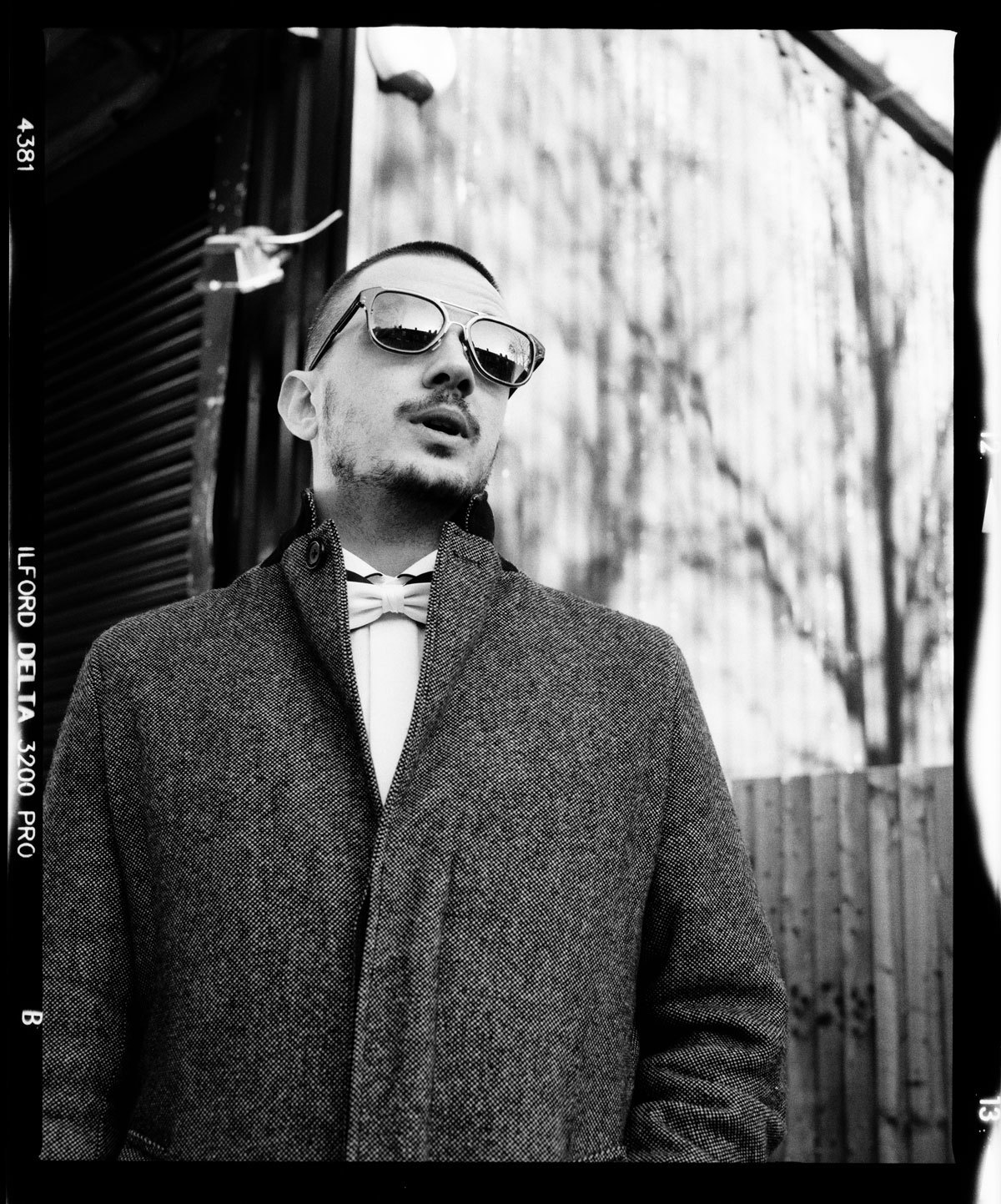
You don’t need to buy expensive things to fit in.
JME: You definitely don’t need to, but I would say I still find enjoyment in it in a certain way. It depends who the artist is. Some people, when they rap about Giuseppes, it gasses me, it makes me want to buy them. Will I? That’s another story. I was always known as someone that could dress, but I wasn’t ever known for just wearing things for the sake of it. The first thing was ‘Rah, he can spit’. As long as you say that first. Clothes is always secondary. To me, anyway. I don’t really care that deep; I’m just trying to present myself properly.
It seems that you found yourself at the time grime found itself.
JME: The thing about grime is it’s not a genre like any other genre. Grime is just everybody’s lifestyle growing up. People say ‘grime died’ or ‘grime came back’ or whatever. It’s just people’s lives. People had kids and came back. What we did in our lives is what grime ended up being. When Giggs came out with Talking The Hardest, them days there, JME’s like ‘You’ll get air vents in your car door’. I was just bouncing around lyrics and flows. Giggs was there on the streets with his freestyles. Who would’ve ever thought we’d make a tune together? Hard grime. It’s mad, the paths our lives have taken. That’s what the scene is. It’s just actually what we are.
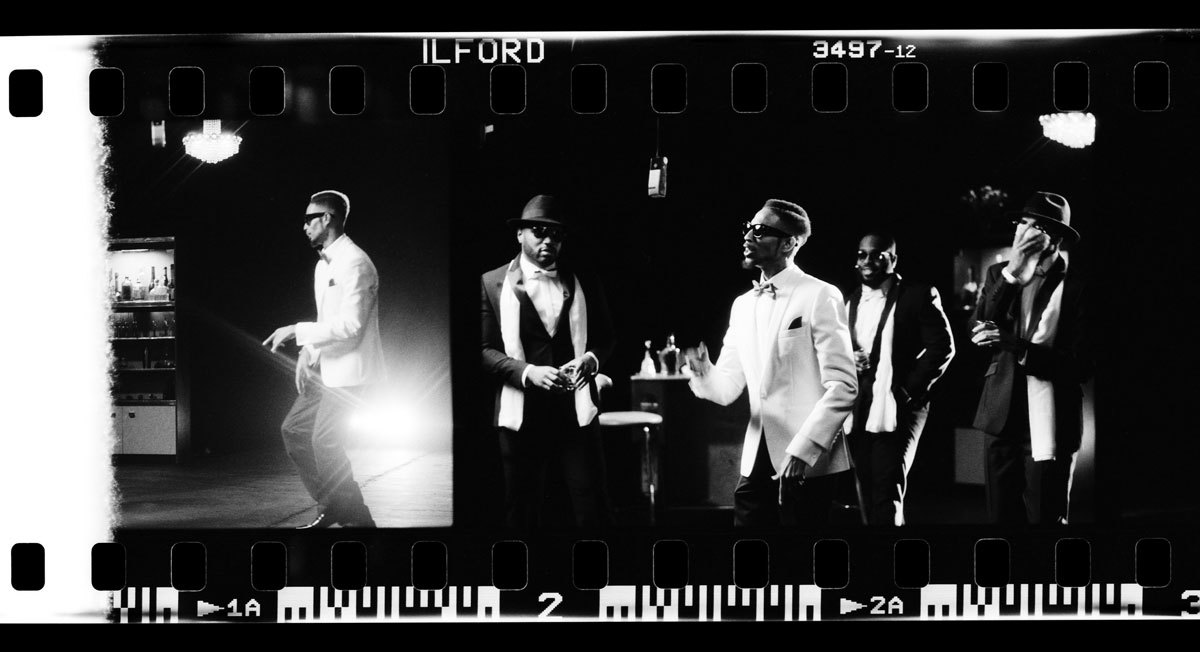
Being not only musicians but entrepreneurs too, what inspires you to push and create more businesses while inspiring young people to make money from their own culture?
Lethal B: Grime and the music business. The underground scene, because obviously there’s a DIY ethic to what we do. I try to use that and incorporate it in different things. In terms of music back then, you pressed your own records, go to the shop and sell it yourself, you handle your own bookings. You’re doing all this stuff and you never realise you’re actually running a business. As time goes on, ideas start to evolve. I’m thinking, ‘Okay, I’m doing my own thing, but why am I wearing someone else’s clothes. I should do my own clothes’. I think coming from the underground, people like Wiley taught us how we can get money in the underground. Using that underground, DIY formula and just enhancing it as you go along and putting it into different businesses. The moral of the story is it’s just hard work, man. Having a plan. There’s no rules to what we do.
How do you think grime has changed the music industry?
Lethal B: You don’t need to be signed. You can do your own thing. You can make money other ways. Before it was about getting a record deal, but no one wants to be signed anymore. It’s about you having your own label and bringing your people through. This thing we do, I don’t think there’s anyone who understands it as much us. It’s still a young scene. It’s like how the Americans are rolling now, everyone’s got their own label, got their own business. I think as time goes on, it’s just gonna keep evolving.
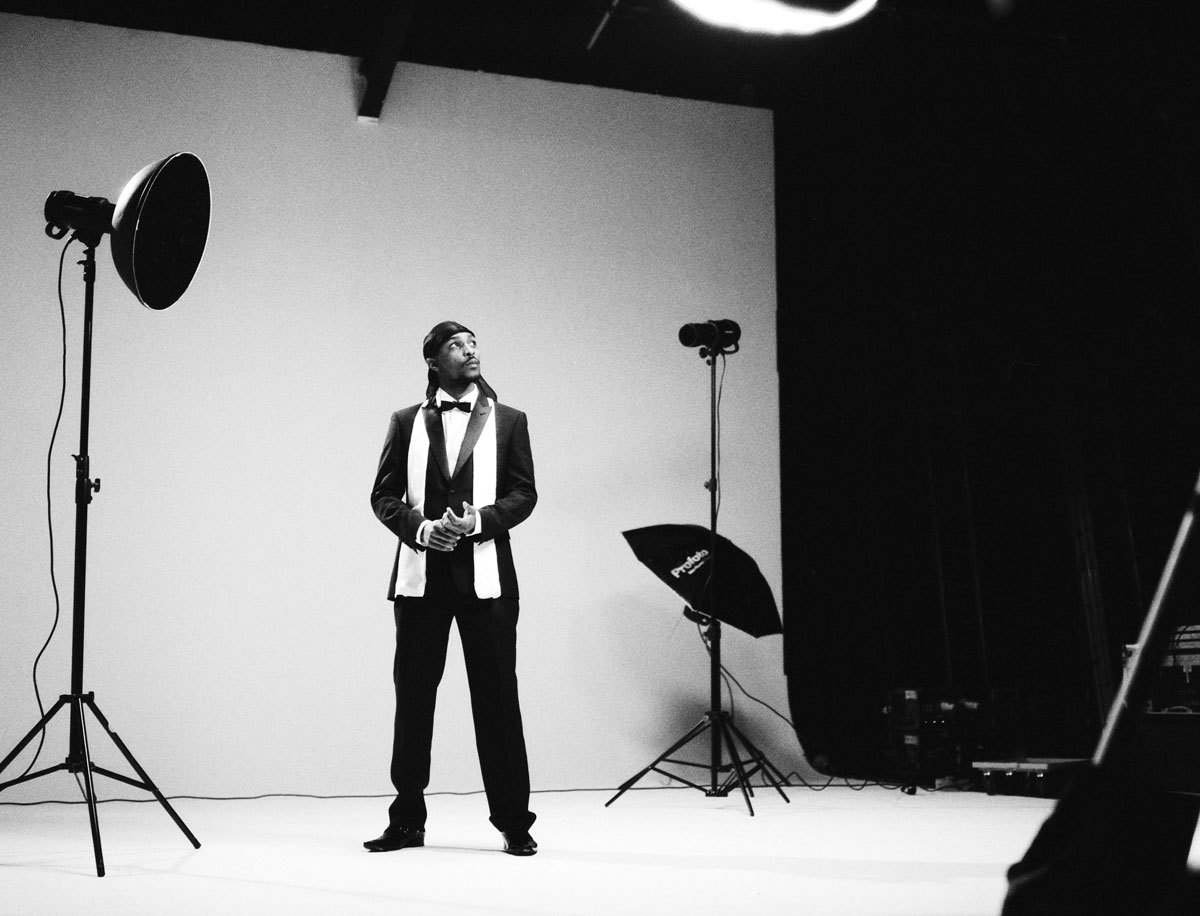
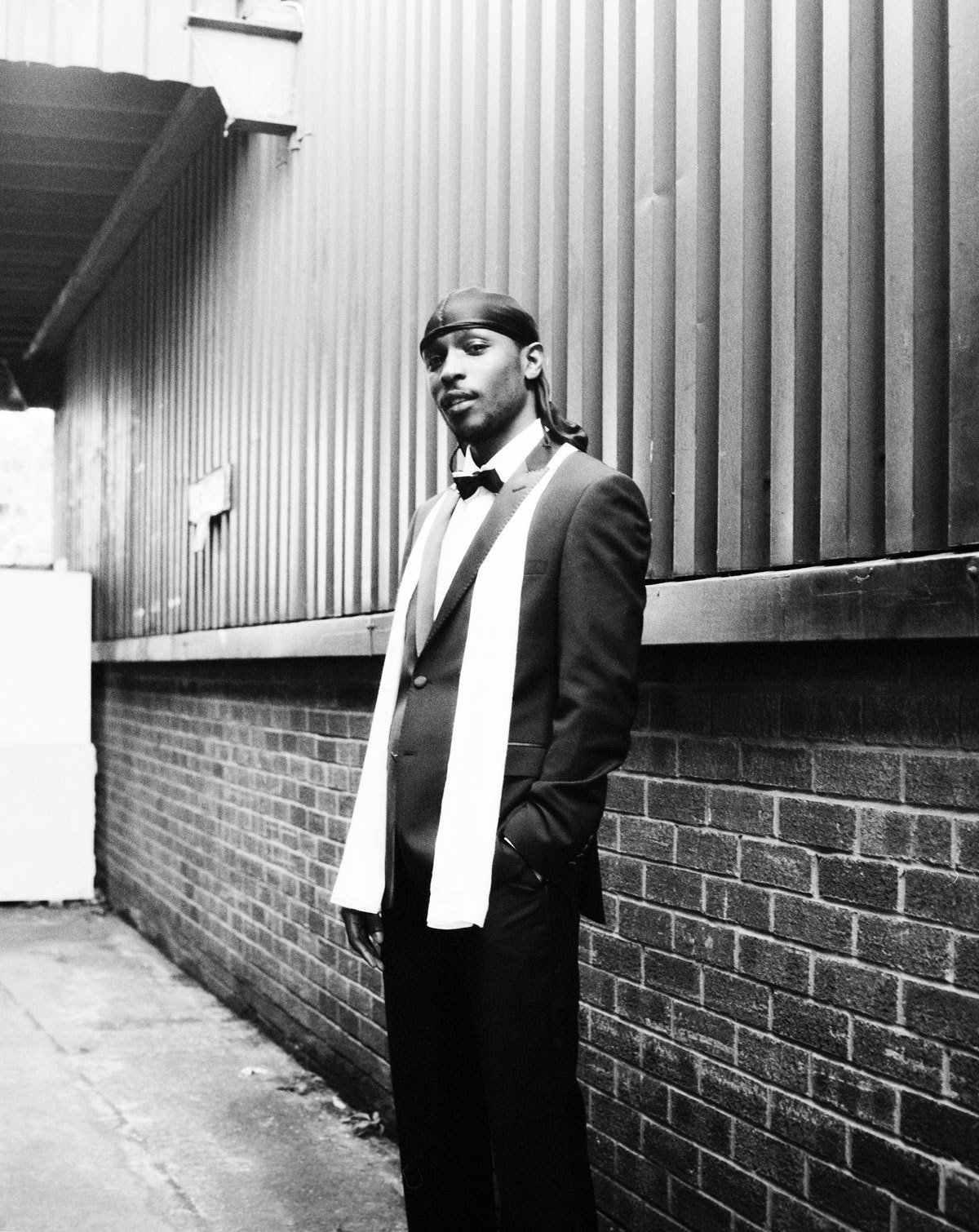
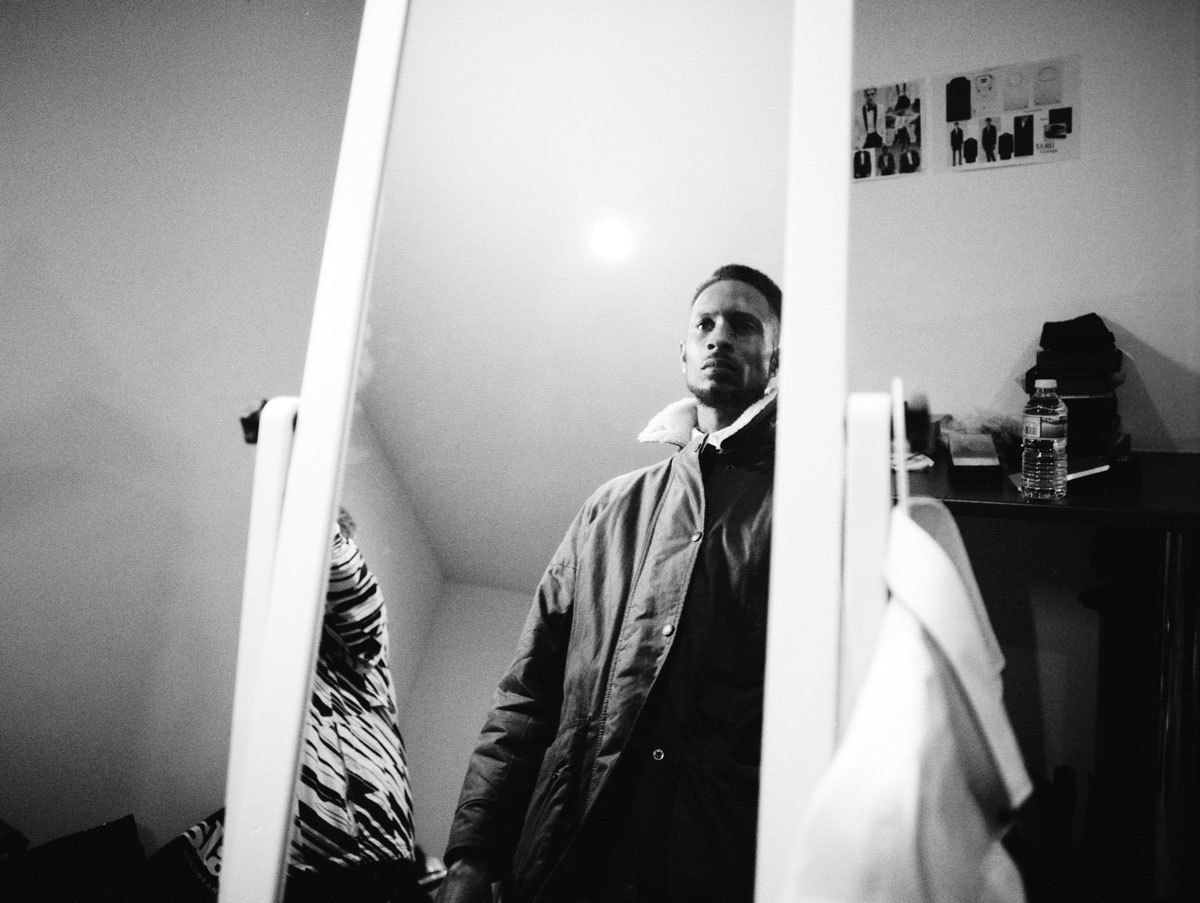
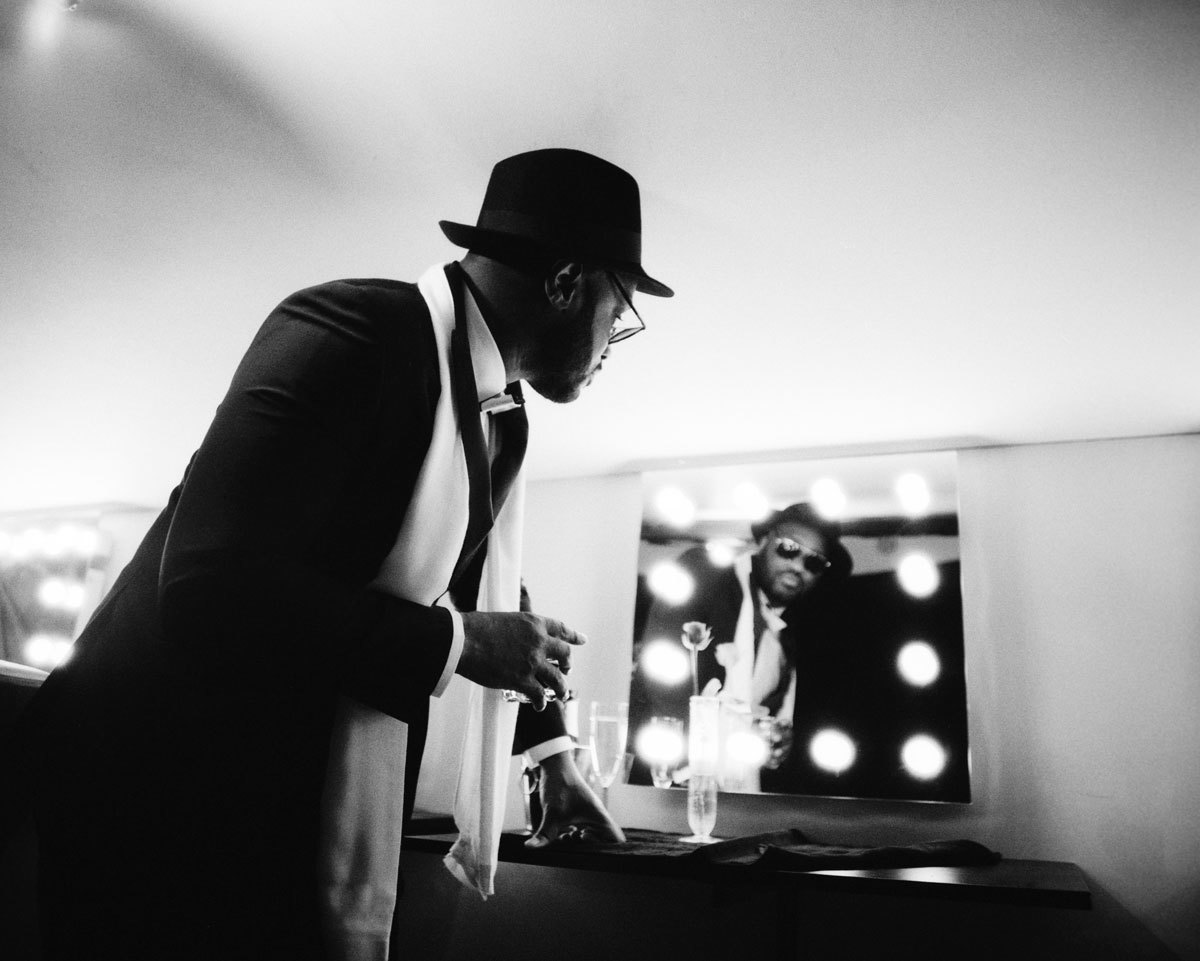
Credits
Text Laura ‘Hyperfrank’ Brosnan
Photography Olivia Rose
